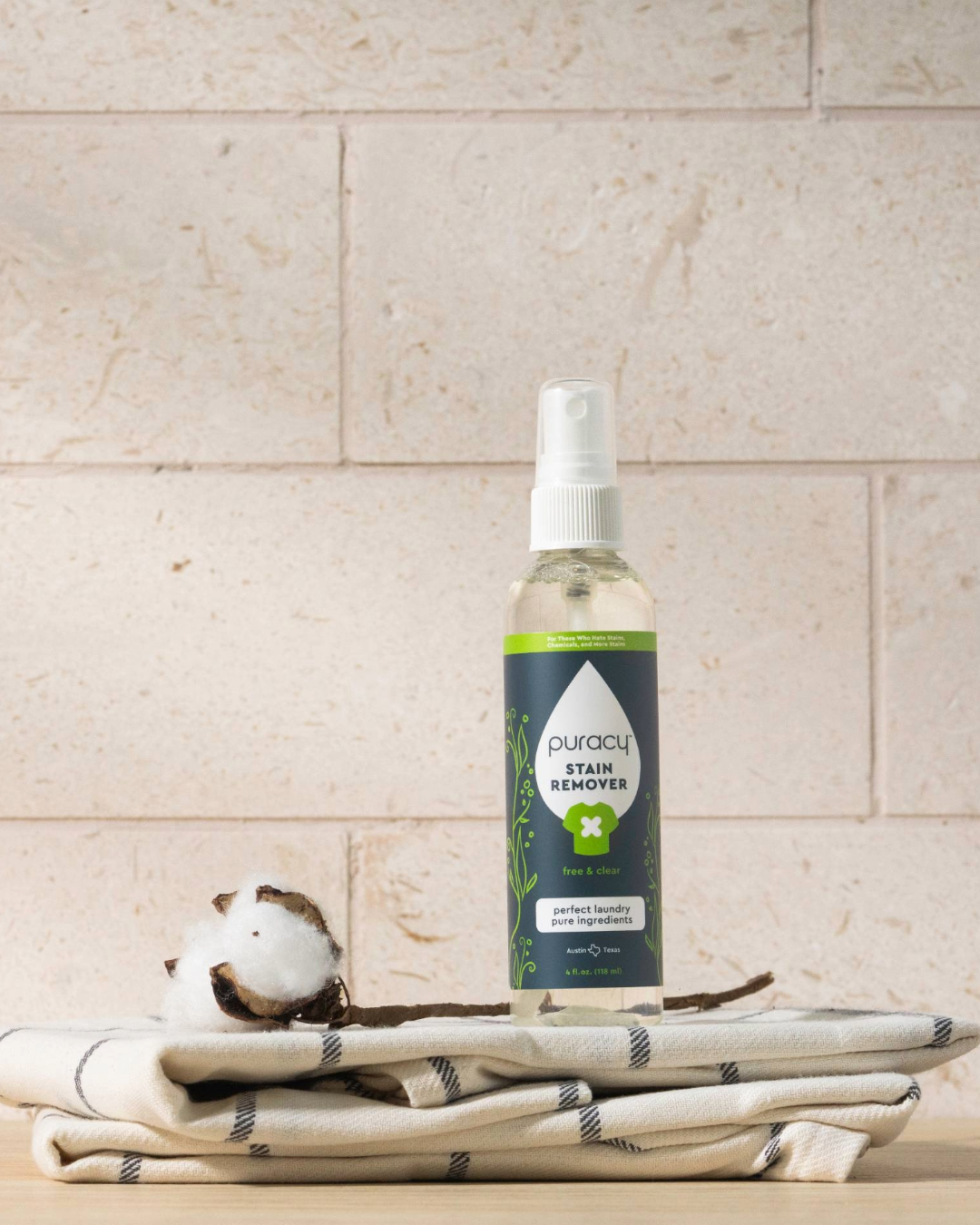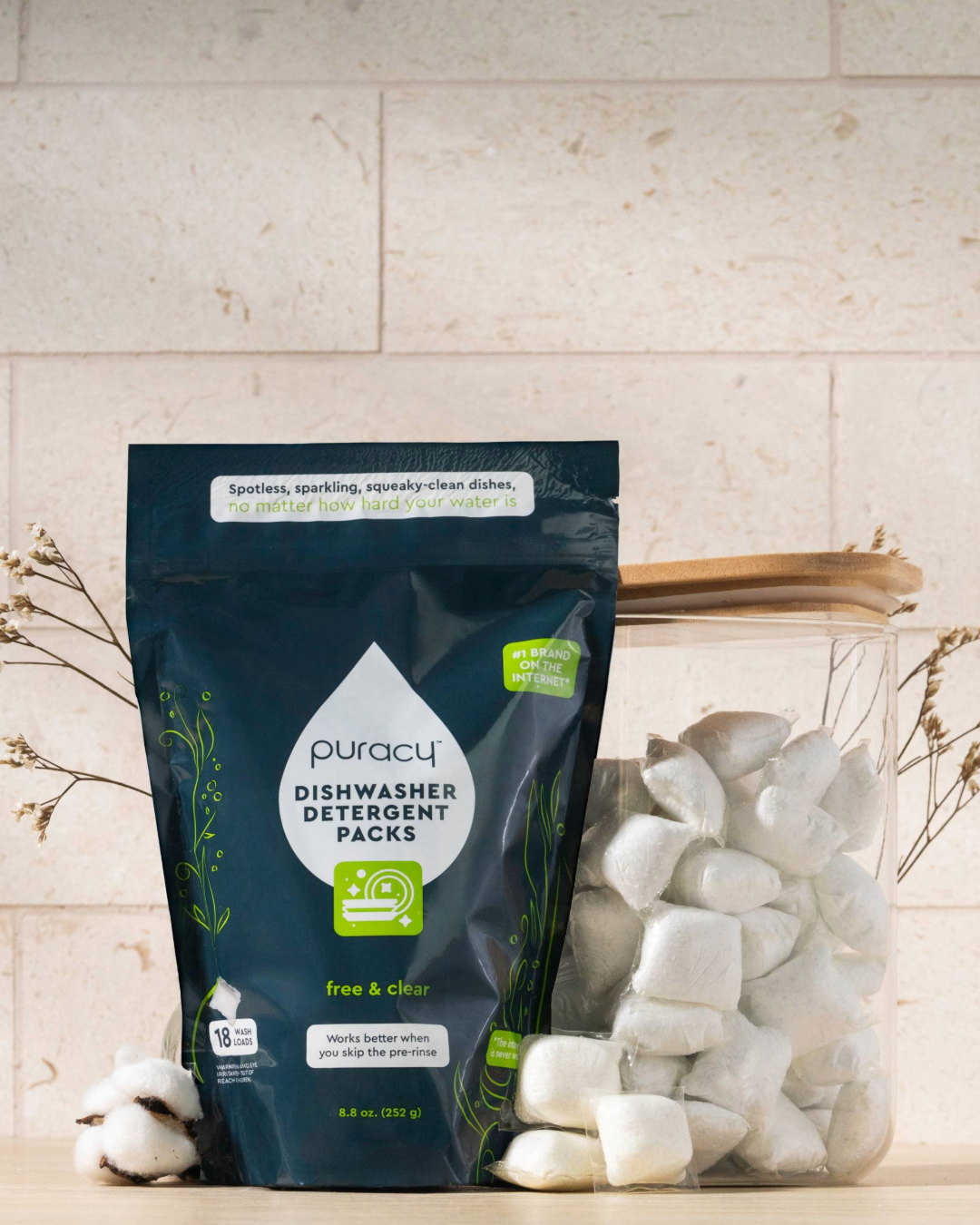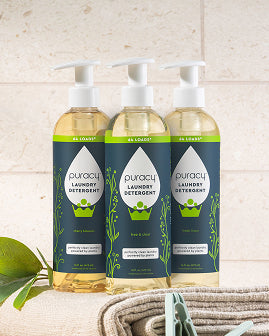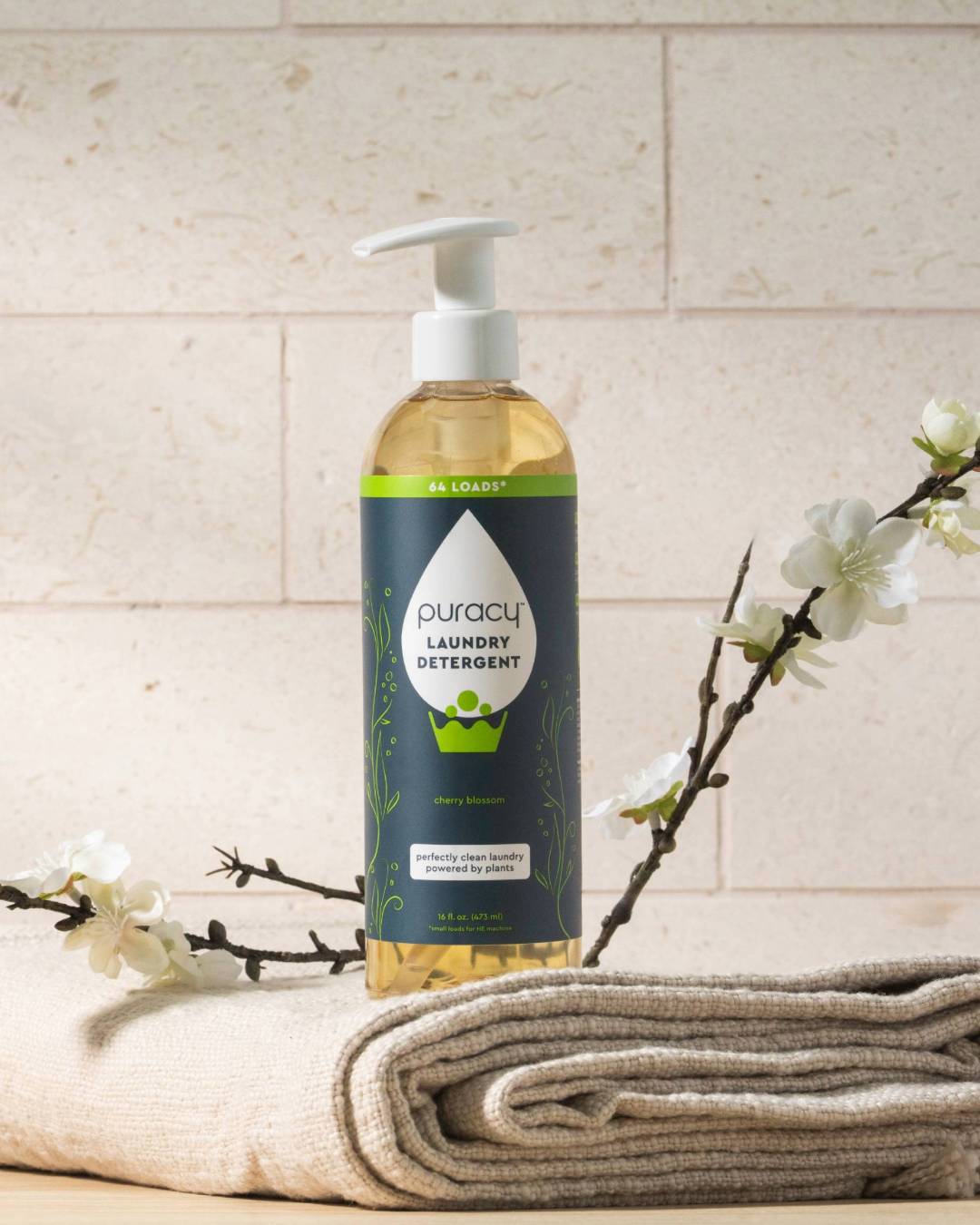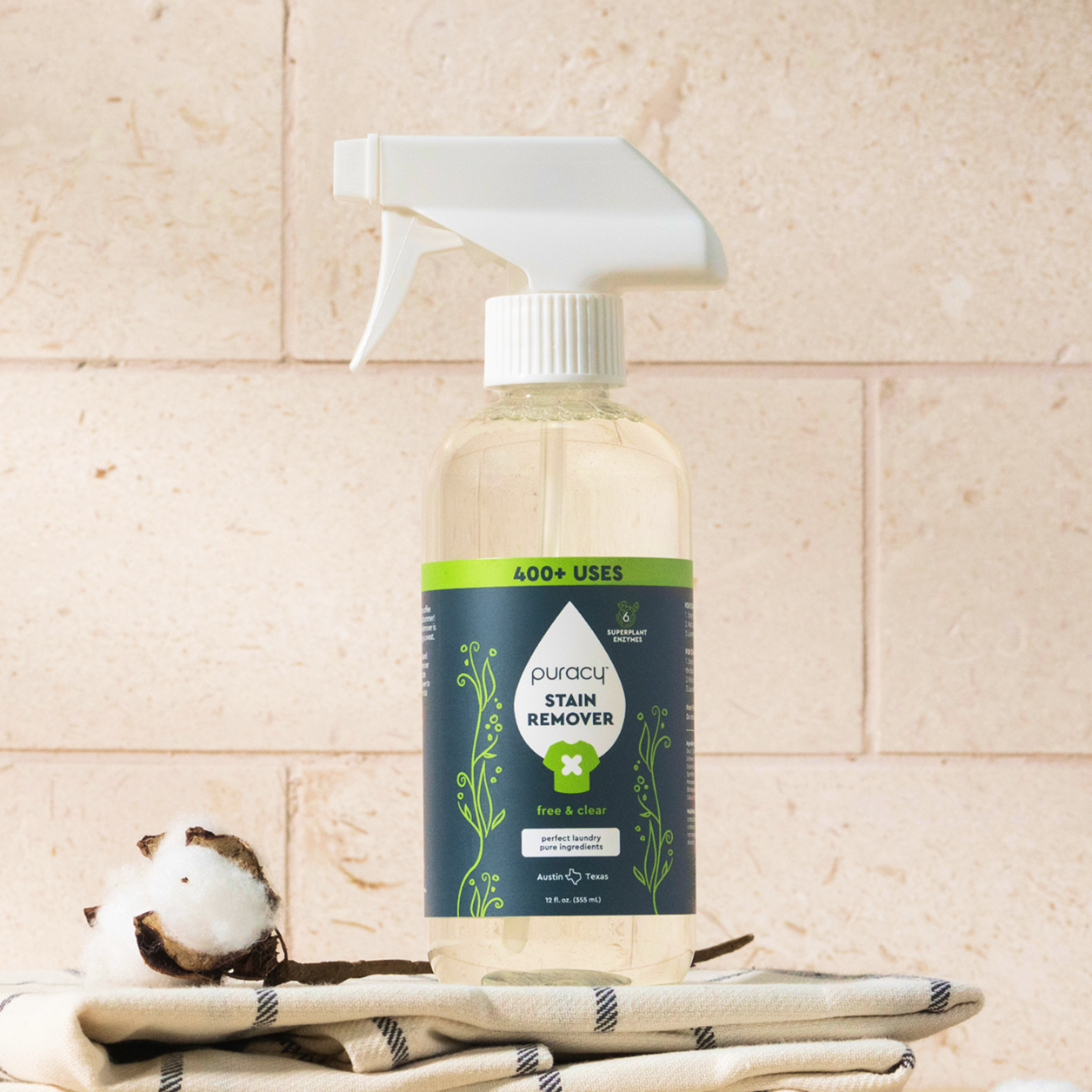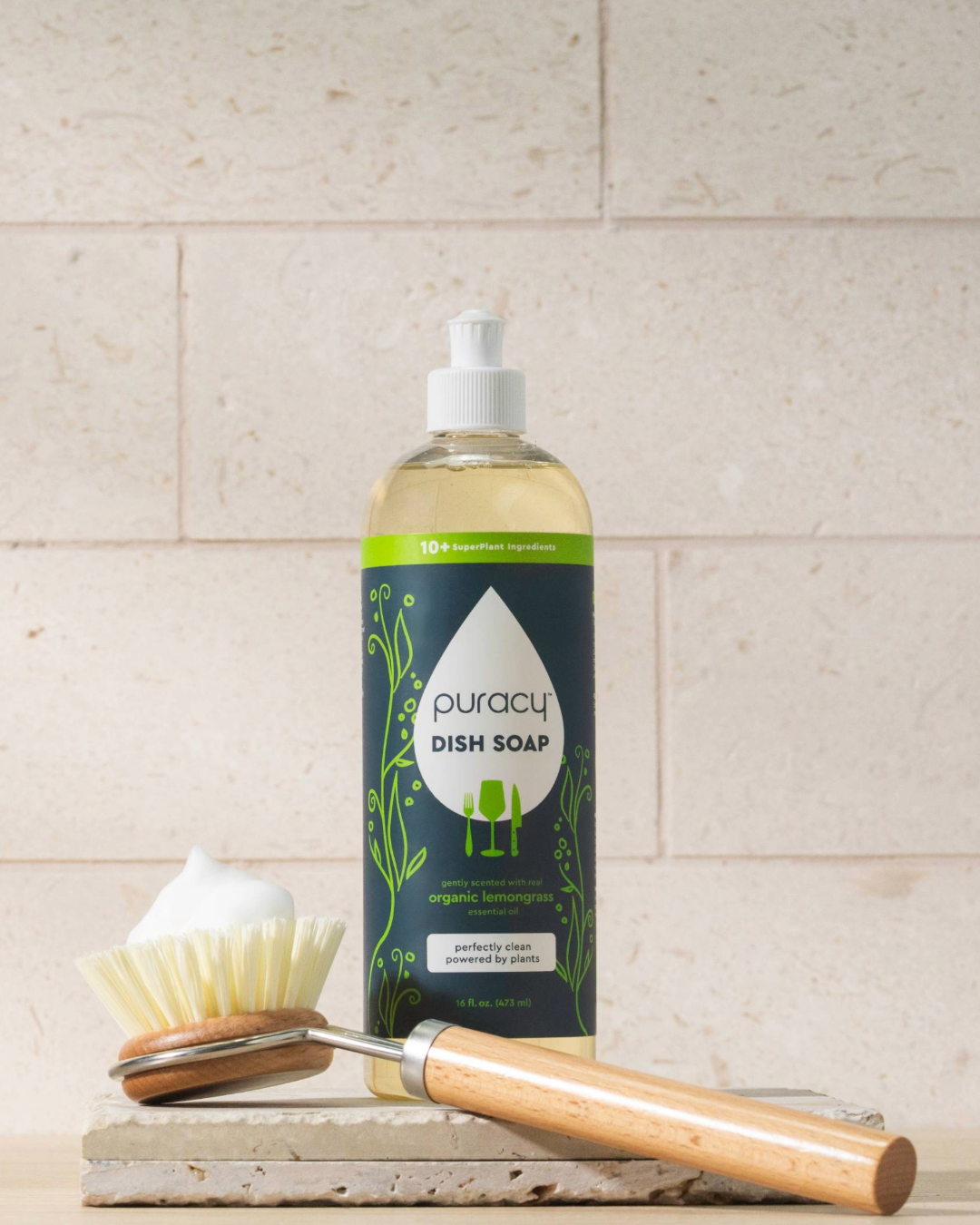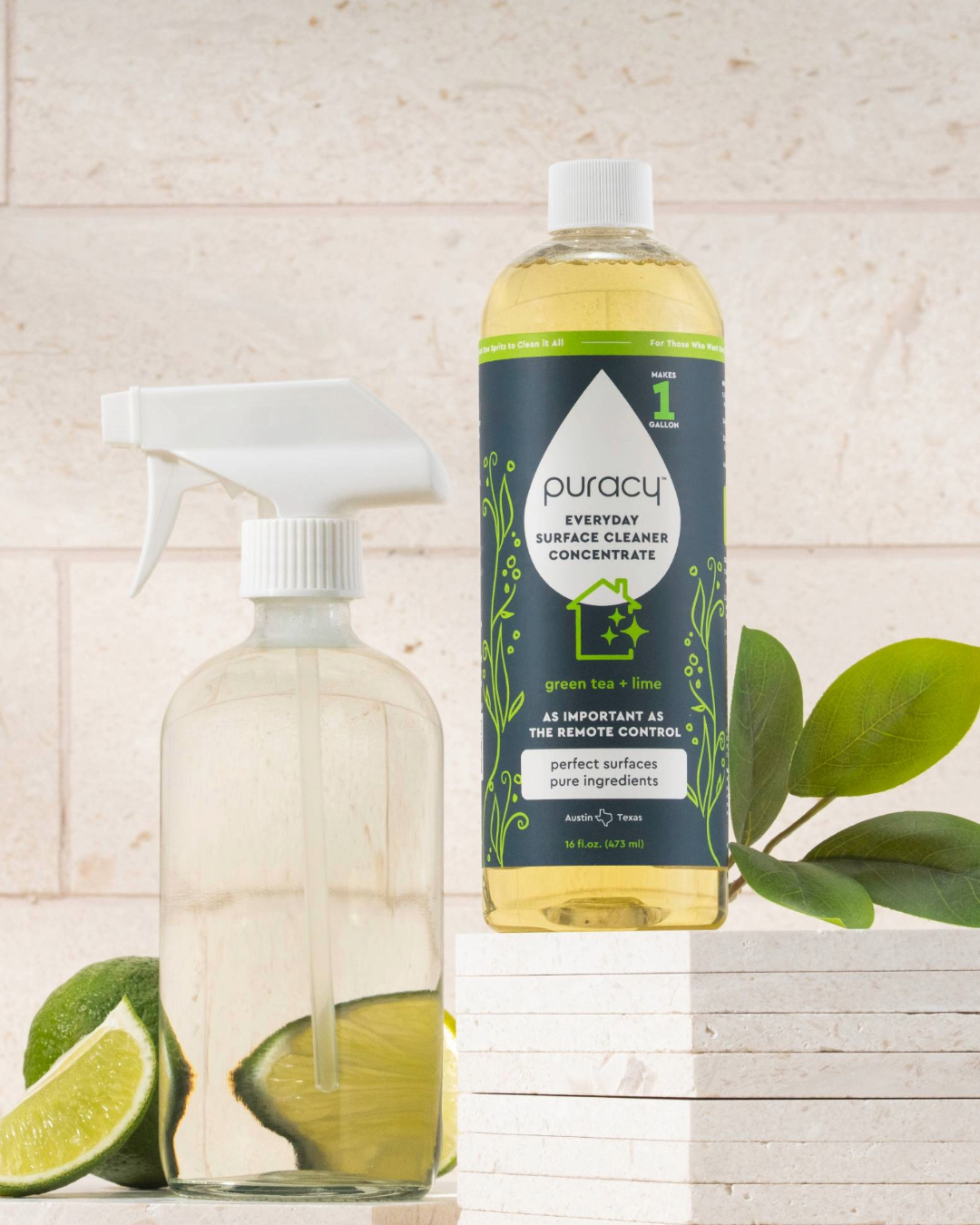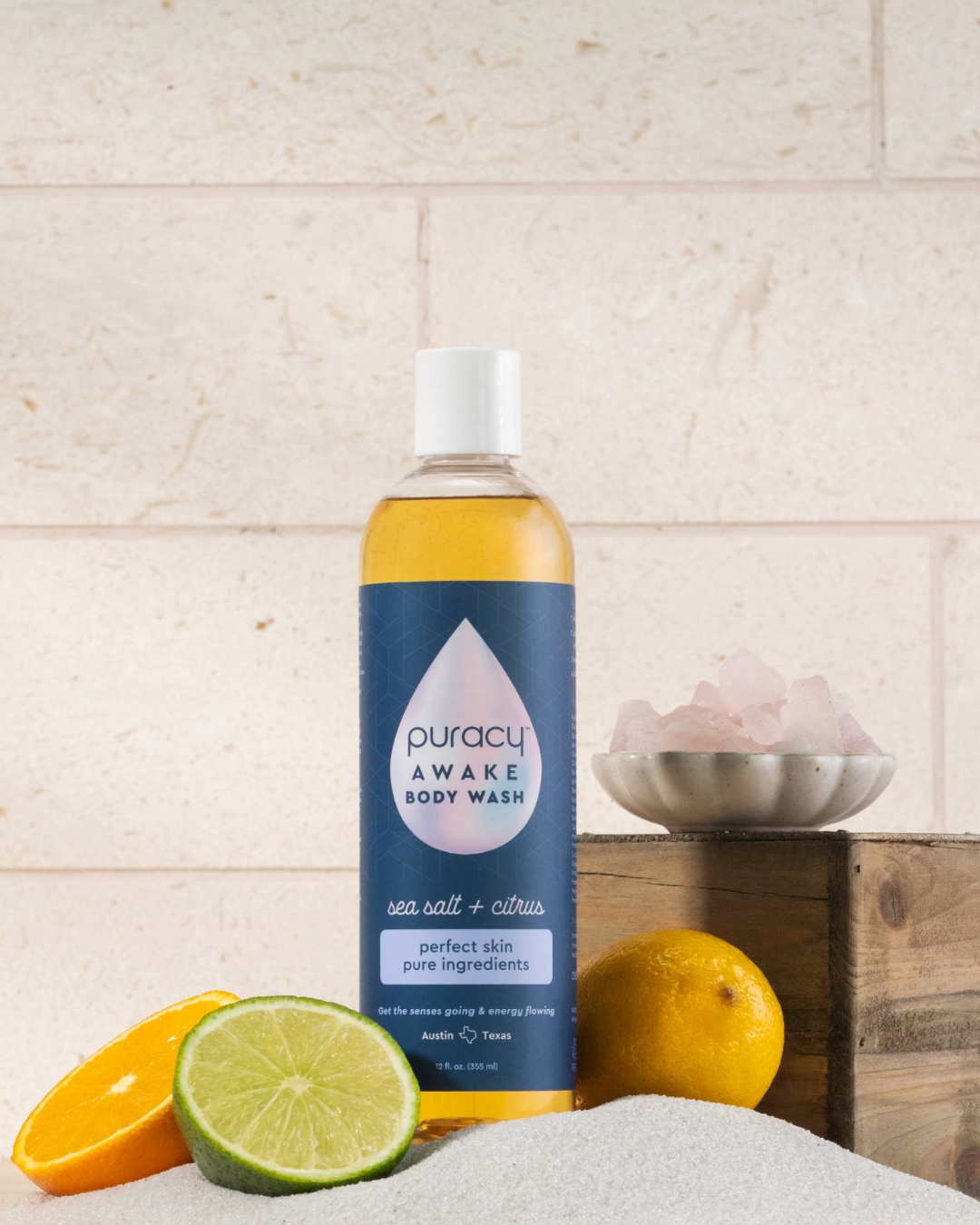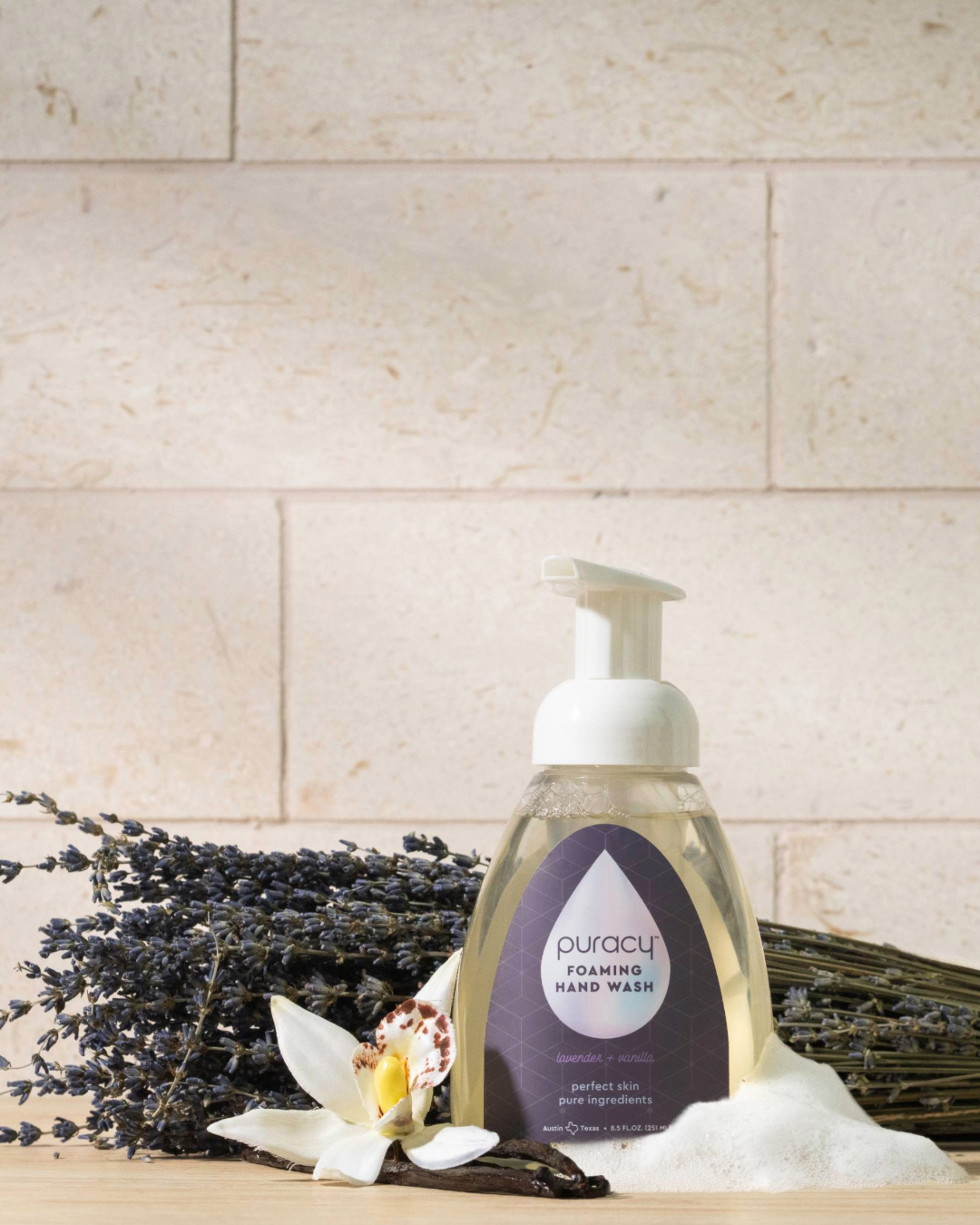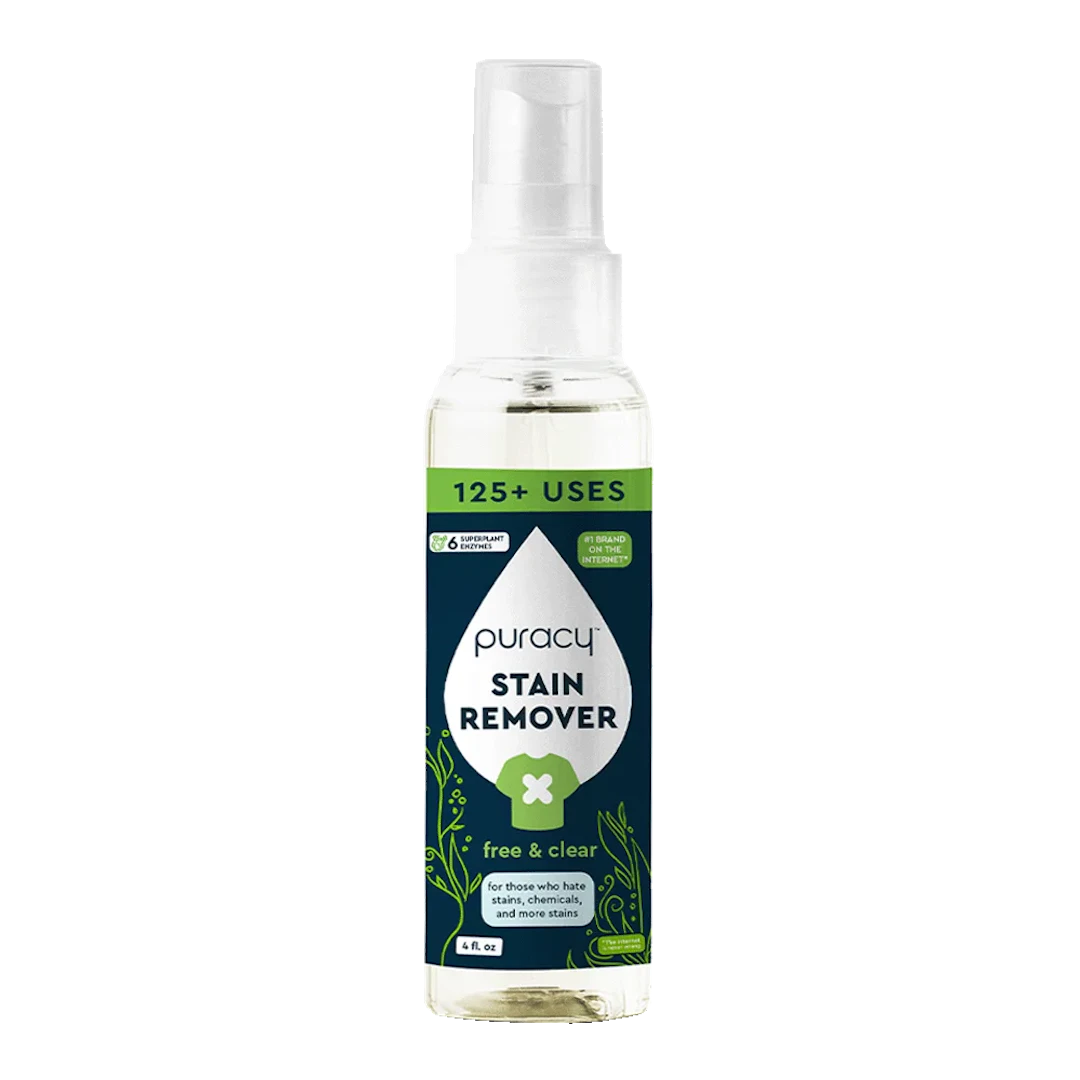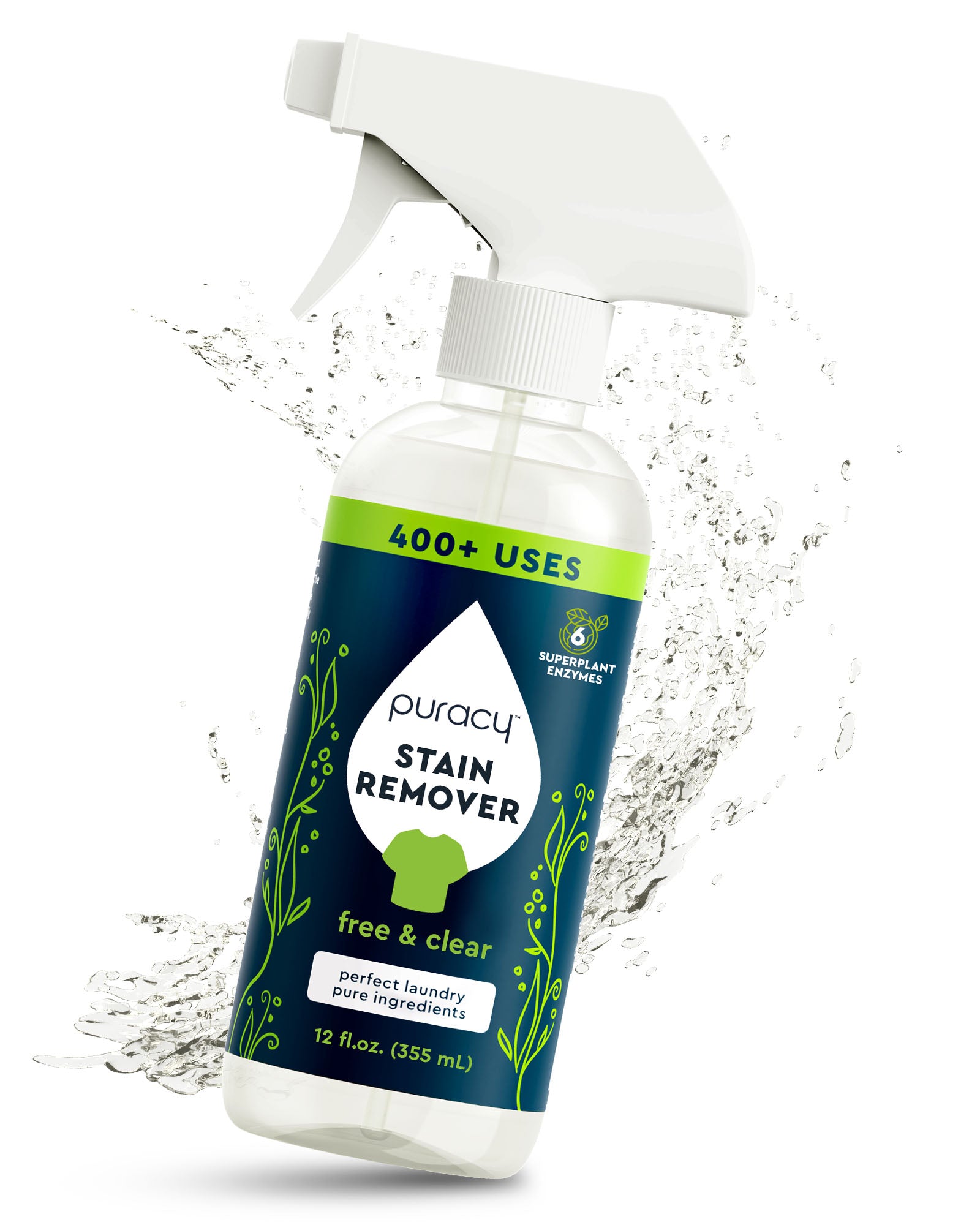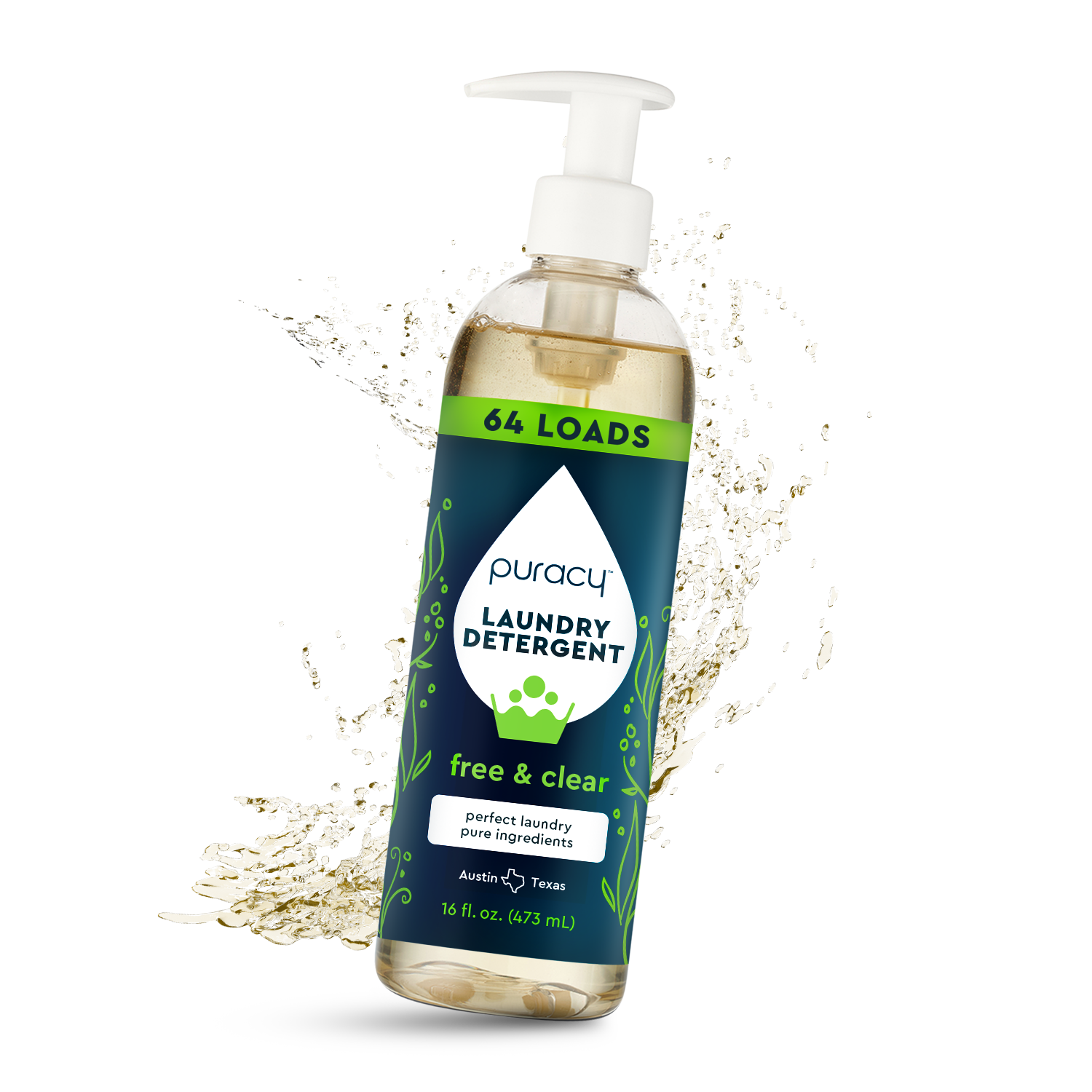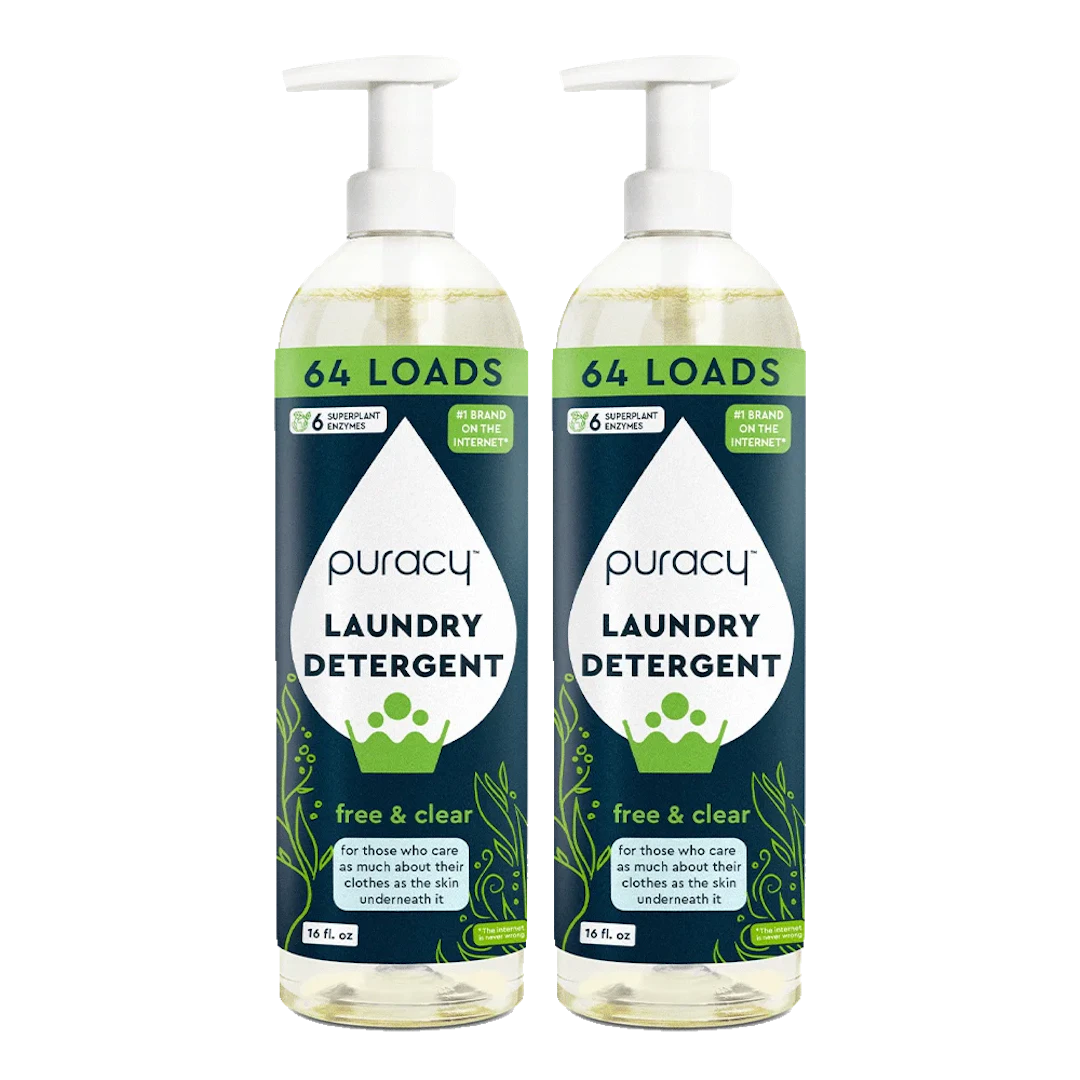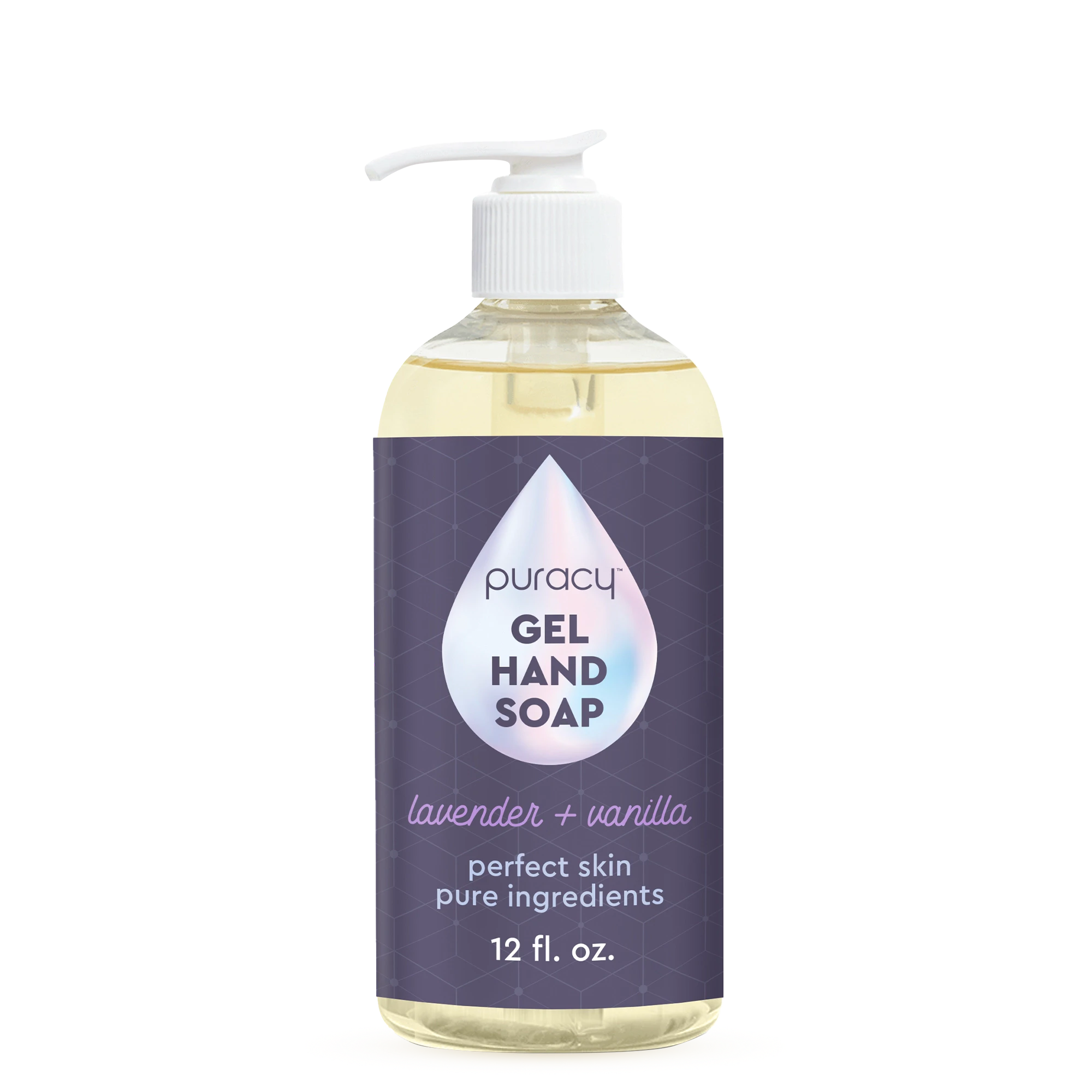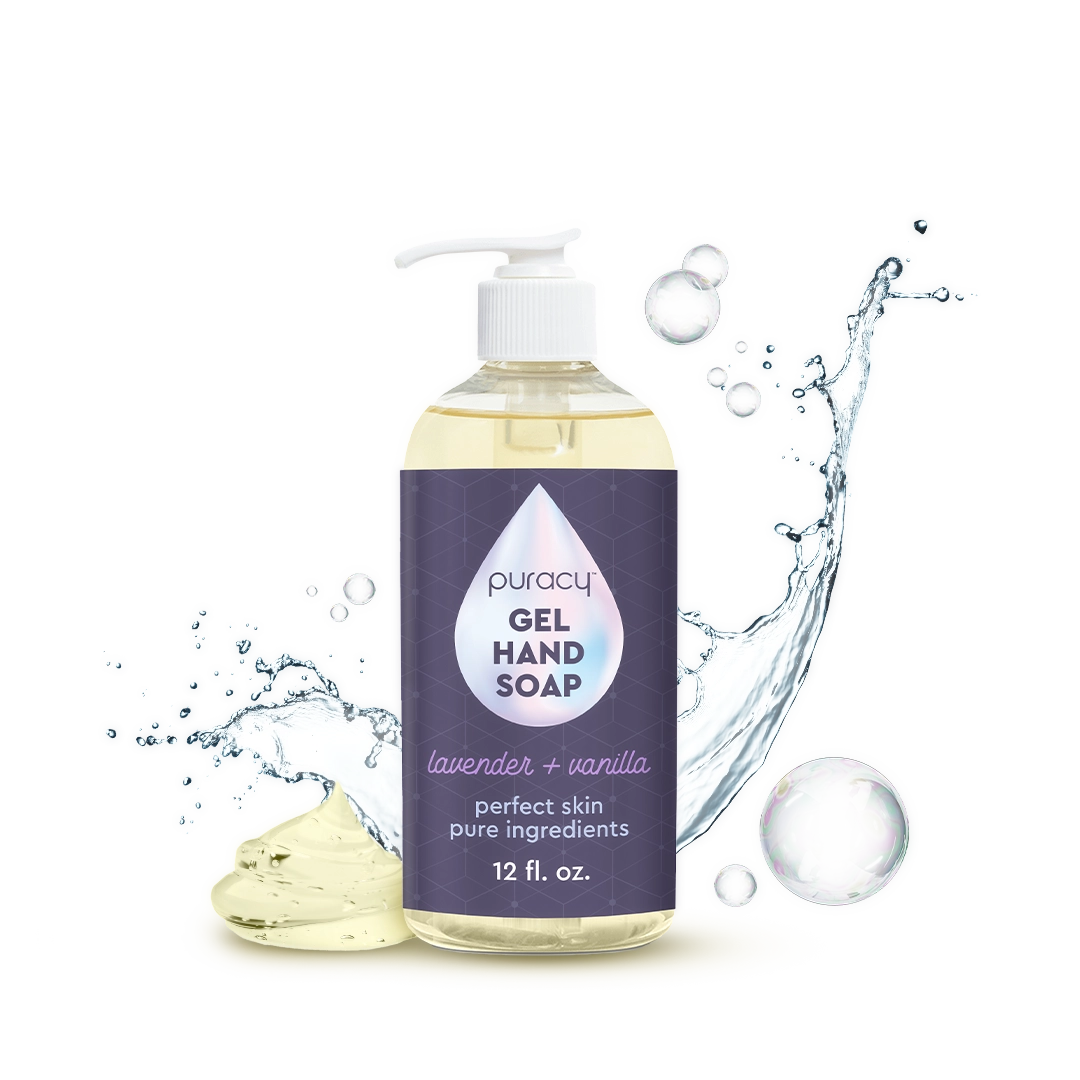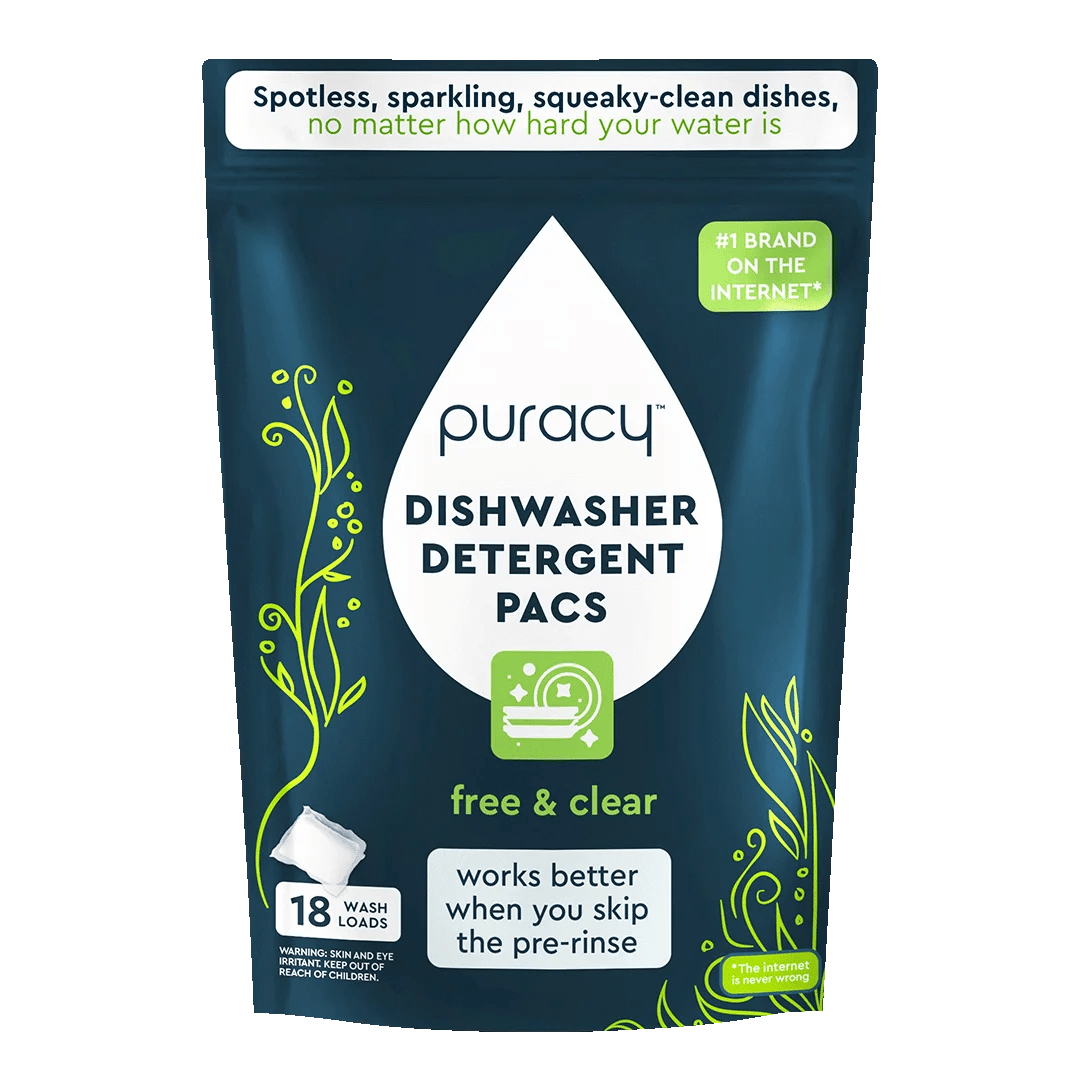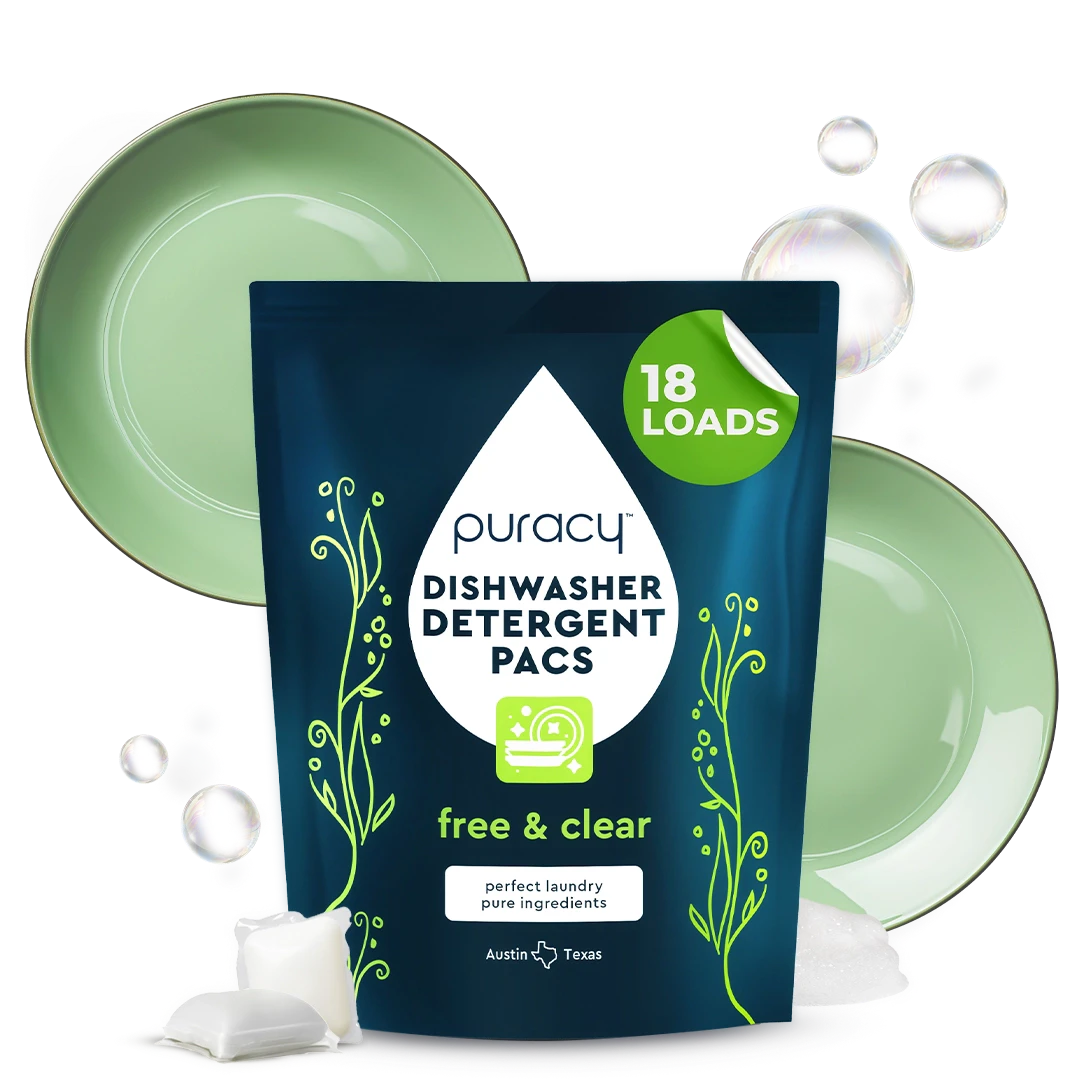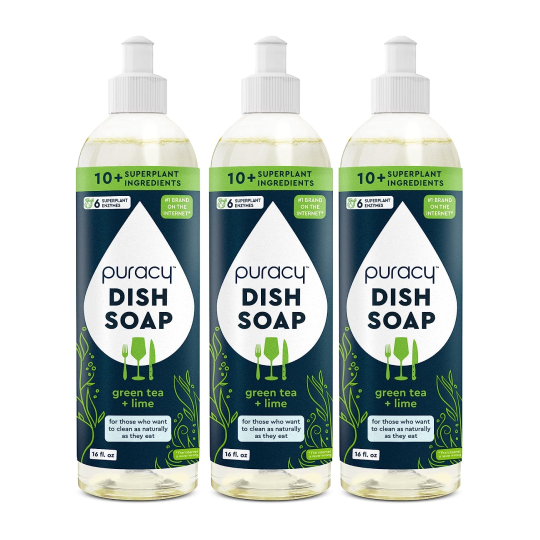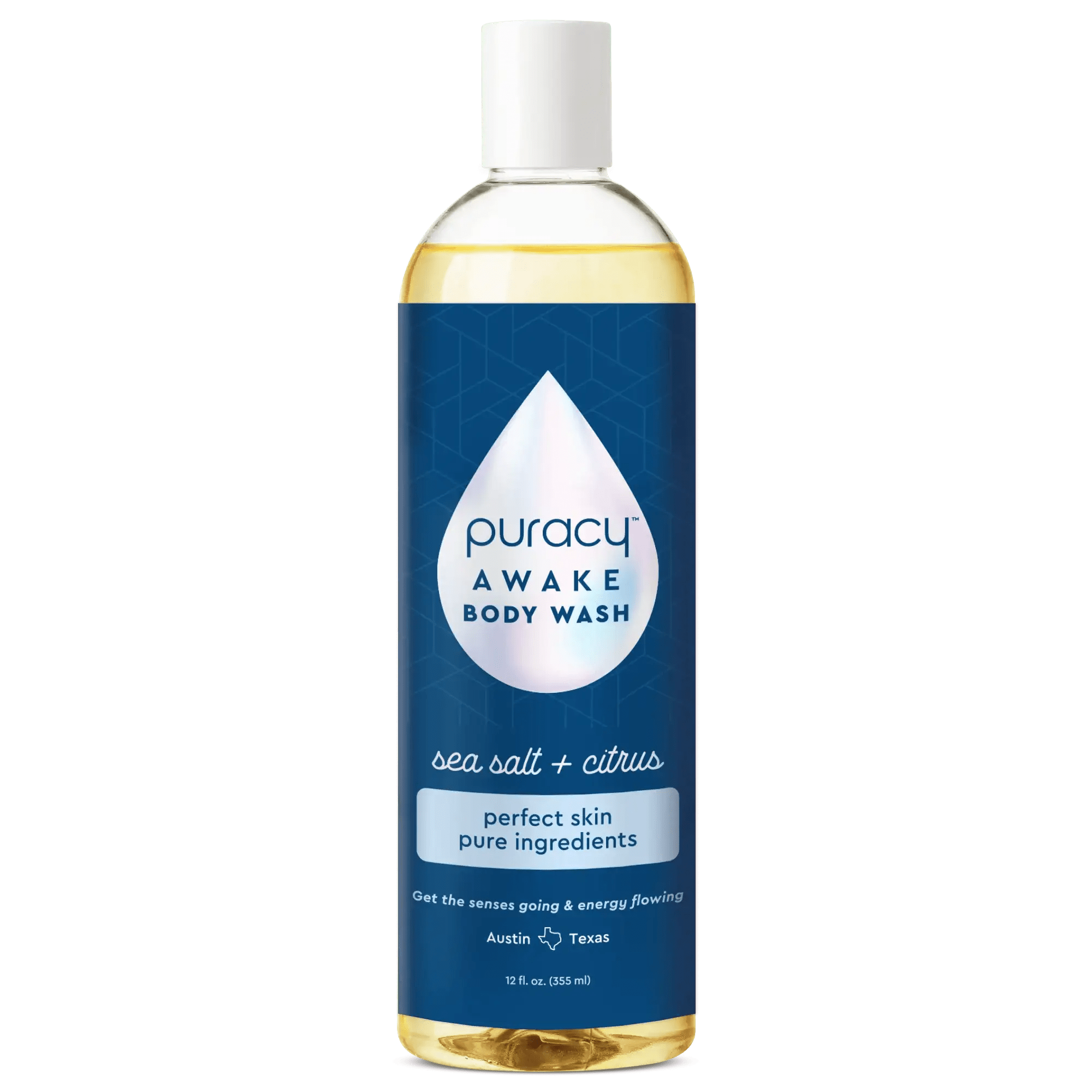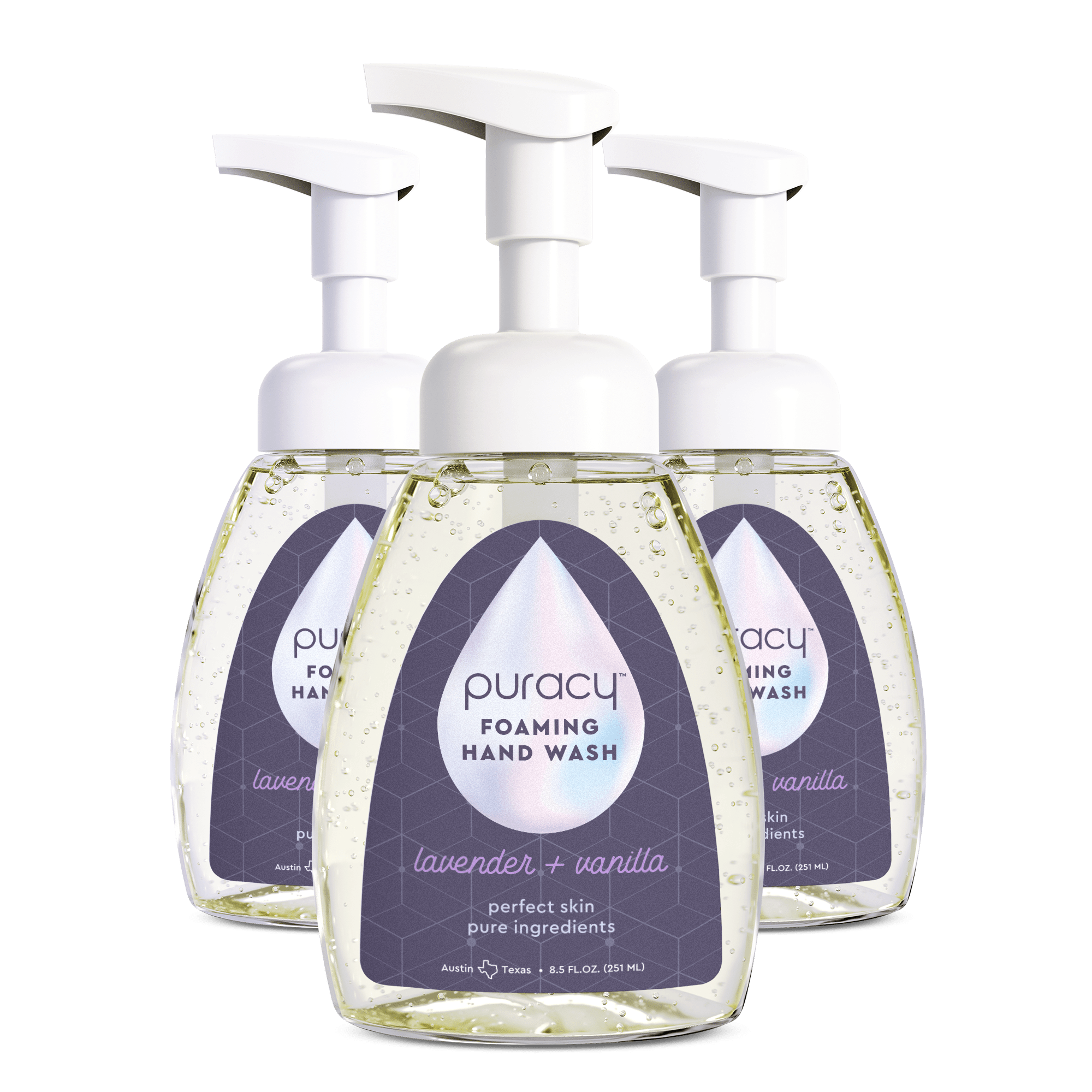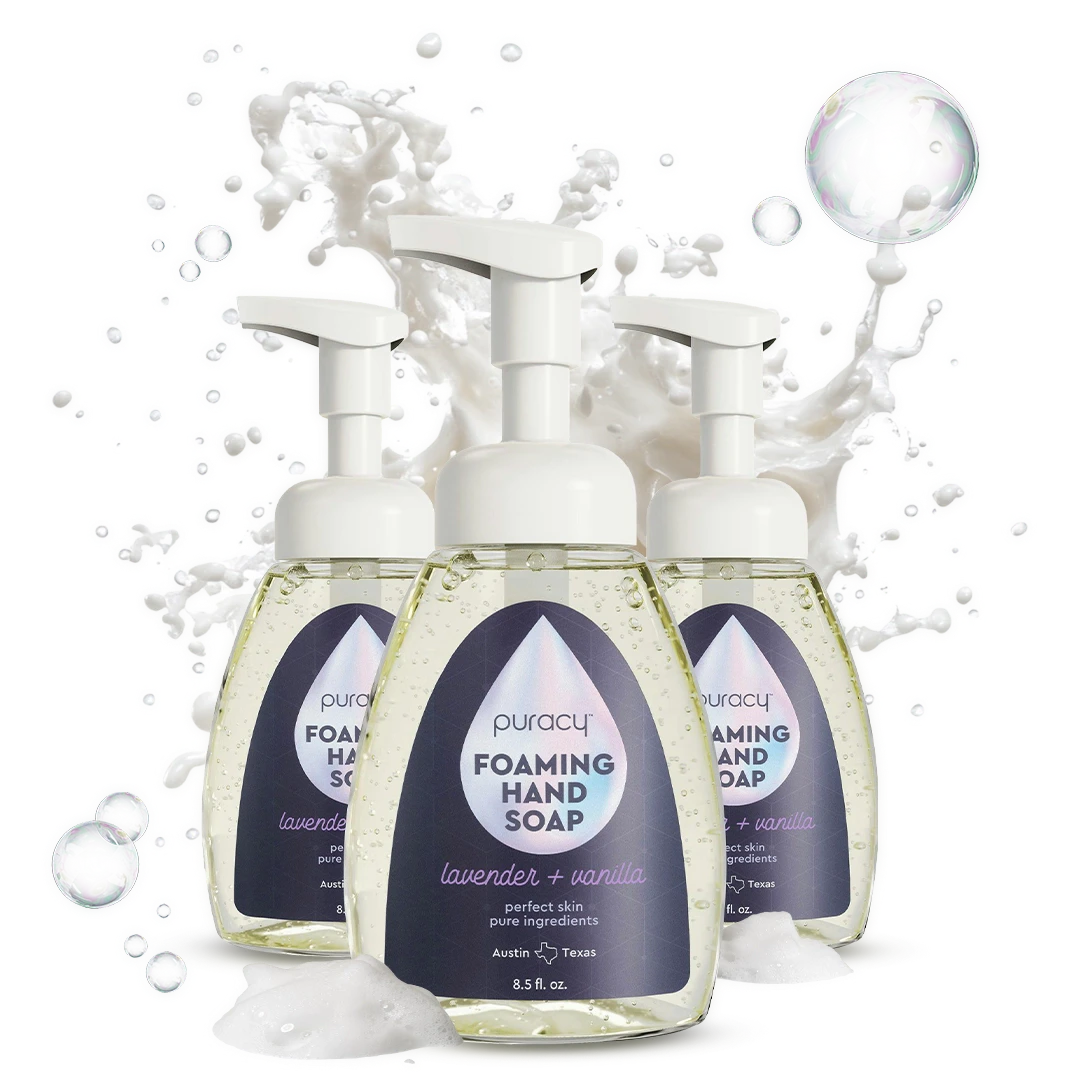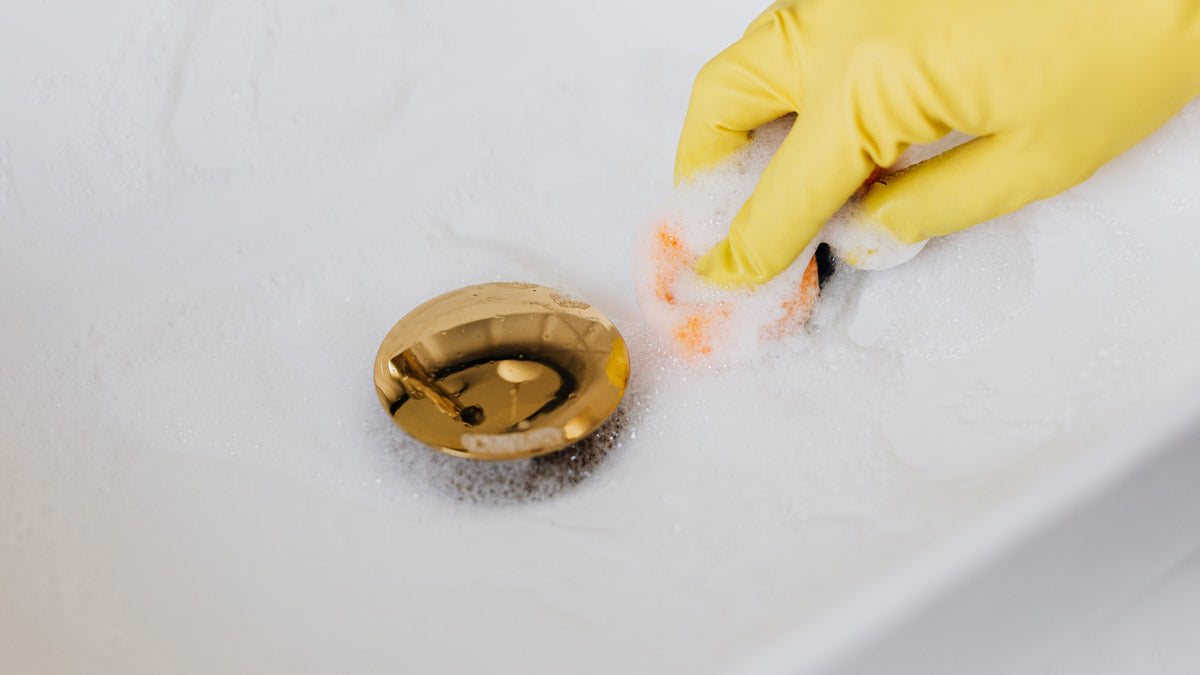
How to Whiten White Clothes Without Bleach
Knowing how to wash white clothes without bleach is important to remove common stains like sweat, dirt, spaghetti, or wine. Rather than using caustics or optical brighteners, you can turn to the right ingredients and techniques to help save the day with bleach alternatives.
Not everyone is a fan of bleach. Here are some bleach alternatives you can try right at home:
How to Whiten White Clothes Without Bleach

What You’ll Need:
- Baking Soda (½ cup)
- White Vinegar (1 cup)
- Lemon Juice (optional, ½ cup)
- Hydrogen Peroxide (optional, ¼ cup)
- Enzyme-based stain remover
Steps:
1. Pre-treat Any Stains
Remove any debris, manually removing any dirt or particles. Apply stain remover directly to any stains, and let it sit for up to 15 minutes.
Pro tip: Grease and oil stains are best removed using warm (not very hot) water at approximately 120–140°F / 49–60°C, while blood, wine, and ink stains are better removed using cold water at approximately 60–80°F / 15–27°C.
2. Soak in Baking Soda
Fill a basin or washing machine with warm water. Add ½ cup of baking soda and dissolve it. Soak your white clothes in this solution for 1-2 hours to lift stains and brighten whites.
Pro tip: Sort your clothes, and wash light colors, dark colors, and whites separately.
3. Add Vinegar in the Rinse
Place your clothes in the washing machine or rinse them manually, adding 1 cup of white vinegar during the rinse cycle. Vinegar helps remove residue, odor, and dinginess.
Pro tip: Act quickly to ensure stains don’t set – the longer you wait, the harder it is to tackle the stain.
4. Lemon Juice Boost (optional)
For extra brightness, mix ½ cup of lemon juice into the water. Lemon’s natural citric acid enhances the whitening effect. Soak for 30 minutes to an hour.
5. Hydrogen Peroxide Wash (optional)
If needed, add ¼ cup of hydrogen peroxide to the wash cycle. It acts as a mild natural bleach, brightening fabrics without harsh chemicals.
6. Sun Drying
Hang clothes in direct sunlight. Sunlight naturally bleaches and sanitizes, leaving your whites brighter and fresher.
Natural Bleach Alternatives
1. Baking Soda

Is it natural?: Yes
Is it eco-friendly?: Yes
Is it potentially toxic?: No
Baking soda is a gentle abrasive substance which is effective in eliminating hard water stains, fridge odors, and—you guessed it—washing white clothes.
Turn on your washing machine, dissolve ½ cup of baking soda, then run a normal cycle. For larger loads of laundry, you can use a full cup of baking soda.
2. Warm Water

Is it natural?: Yes
Is it eco-friendly?: Yes
Is it potentially toxic?: No
Washing all whites in hot water is a natural course to keep whites white, but it’s not the most eco-friendly considering the resources required.
Use the warmest water that fabric care instructions allow, then opt for an "extra rinse" cycle. Extra-stubborn stains may require another treatment but every stain should disappear within another application. Don't put clothes in the dryer until you're sure that stains are gone or you might "bake" them into fabrics.
3. Dishwasher Detergent

Is it natural?: No
Is it eco-friendly?: No
Is it potentially toxic?: Yes
In a cleaning bind and can only use what you have on hand? Believe it or not, dishwasher detergent can whiten fabrics when used correctly. There are natural, eco-friendly, and non-toxic dishwasher detergents like Puracy that you can use as a bleach alternative.
Otherwise, choose a dishwasher detergent that doesn’t have phosphates or chlorine, especially if you have sensitive skin or allergies.
Take 1/4 cup of dishwasher detergent and add it to your regular detergent. If you have a high-efficiency machine, avoid using this option to avoid the suds which can potentially overload your machine.
4. Vinegar

Is it natural?: Yes
Is it eco-friendly?: Yes
Is it potentially toxic?: No
Vinegar can whiten clothes, soften fabric, and help remove musty/mildewy smells. It is 100% biodegradable, making it an eco-friendly alternative to bleach.
During the last rinse cycle, pour 1/4 cup of distilled white vinegar into an already-running machine. If your clothes need a bit more attention, soak them for a few hours in a basin full of warm water and one cup of white vinegar.
5. Lemons

Is it natural?: Yes
Is it eco-friendly?: Yes
Is it potentially toxic?: No
Next to vinegar, lemons have been around as a mild cleaning agent.
Fill a basin with hot water and the juice of 1-2 lemons. Soak your clothes for a few hours and run it through a normal washing machine cycle.
If your clothes need an extra brightening boost, boil the water first, add the lemon juice, swirl in the garments, and let everything soak overnight. Be sure to check fabric care instructions to make sure items can handle hot water!
6. Hydrogen Peroxide

Is it natural?: No
Is it eco-friendly?: Yes
Is it potentially toxic?: Yes
The hydrogen peroxide a bleach alternative that leaves no harmful residues because it breaks down into water and oxygen. It can be potentially toxic in high concentrations, according to the Occupational Safety and Health Administration (OSHA). Those commonly available in stores for household use, usually with 3% concentration, is generally considered safe when used properly.
Make a paste of equal parts hydrogen peroxide, baking soda, and water. Cover the affected areas with a ¼” layer and let it sit for 30-60 minutes. Remove excess residue with a soft brush and throw the item in the washing machine.
7. Sunshine

Is it natural?: Yes
Is it eco-friendly?: Yes
Is it potentially toxic?: No
Who doesn't love the smell of sun-dried bedsheets? This is one of the most effective ways to naturally whiten white clothes that have yellowed without bleach. The UV rays can fade fabric, but it’s non-toxic and eco-friendly. Unless the items are completely white, turn them inside out and limit drying time to a couple of hours.
Did You Know? Line drying can conserve up to 4% of your electricity usage, making it an eco-friendly bleach alternative.
Other Bleach Alternatives

Here are some bleach alternatives that are notable mentions:
8. Bluing Liquid

Is it natural?: No
Is it eco-friendly?: No
Is it potentially toxic?: Yes
Bluing liquid is still available today in a non-toxic and biodegradable form to make white laundry look whiter. However, it’s recommended to keep this away from direct eye contact to avoid irritation. Prolonged inhalation may also be harmful to people.
Place your white laundry items in the bluing solution, ensuring they are fully submerged. Let them soak for about 5 to 10 minutes. Remove the laundry items from the bluing solution. Rinse them thoroughly with clean cold water to remove any excess bluing liquid. Then, put them in the wash as usual.
9. Cream of Tartar

Is it natural?: Yes
Is it eco-friendly?: Yes
Is it potentially toxic?: No
Cream of tartar is a natural ingredient, derived from tartaric acid.
Create a paste with two tablespoons of cream of tartar. Apply the paste directly on any stain and allow it to sit for at least 30 minutes. Then wash as usual.
10. Enzyme Presoaks

Is it natural?: Yes
Is it eco-friendly?: Yes
Is it potentially toxic?: No
Enzyme presoaks are essentially stain removing agents used before machine washing your laundry. These bleach alternatives are usually great for treating protein stains that are difficult to remove.
They are typically derived from natural sources, such as plants. They are considered natural and eco-friendly. However, it is important to check specific products for their ingredients and environmental certifications.
11. Borax (Sodium Borate)

Is it natural?: Yes
Is it eco-friendly?: Yes
Is it potentially toxic?: No
Borax is laundry safe and is considered a natural, non-toxic clothes whitener. It’s an oxidizing agent that breaks down dirt and grime that holds onto your fabrics.
12. Sodium Carbonate (Washing Soda)

Is it natural?: Yes
Is it eco-friendly?: Yes
Is it potentially toxic?: No
Sodium carbonate, also known as soda ash or washing soda, can be helpful as a pre-soak ingredient to treat heavily-soiled clothes.
Use a quarter to a half cup of washing soda to your regular wash cycle. You can add it to the detergent compartment for front-loading machines along with the detergent.
It is a strong alkaline compound, and it's important to handle it with care. Avoid direct contact with your skin and eyes. Also, keep washing soda away from children and pets.
13. Color Remover

Is it natural?: No
Is it eco-friendly?: No
Is it potentially toxic?: Yes
Color removers are good for treating white fabrics that have been accidentally dyed when mixed with colored clothes.
Using a pot large enough to soak clothing, simmer water and add a color remover. Start adding the clothes and stir as the unwanted colors fade from the garments.
While it does the job of removing unwanted dyes, it can be harmful to the environment when it leaks back into our water. The chemicals used in it may be toxic to aquatic life. Material Safety Data Sheets of these products also outline its harmful effects on humans.
14. Citric Acid Powder

Is it natural?: Yes
Is it eco-friendly?: Yes
Is it potentially toxic?: No
Citric acid, like vinegar, is used as an all-purpose surface cleaner. As a mild acid, it can be used as a cleaning agent against dirt, grease, and grime.
Start with 1 to 2 tablespoons of citric acid for a regular-sized load. Dissolve it in warm water and add it directly into the washing machine drum along with your regular laundry detergent. Start the washing machine and run it as you normally would, following the care instructions on the garment labels.
15. Aspirin

Is it natural?: No
Is it eco-friendly?: Yes
Is it potentially toxic?: No
Aspirin is one of the many notable mentions in cleaning hacks on the internet today. Huffpost suggests crushing three aspirin tablets and mix it in a bowl of warm water where you should submerge clothes. This article, however, suggests that it is not as effective as good old commercially available bleach.
Frequently Asked Questions (FAQs) In Whitening Clothes

Still have questions about bleach alternatives? Find out more with this FAQ:
-
How to Get Stains out of White Clothes
For armpit stains, use a stain remover and agitate it with a soft laundry brush (or rub the fabric together). Then wait at least 15 minutes before throwing in the washing machine. For tougher stains, you can let the spray set for several days. An enzymatic or plant-based stain remover will do the job well here.
Note: For wool and silk, however, you should only leave this spray on for 60 minutes
-
Do Bleach Alternatives Work on Colored Clothes?
Yes, bleach alternatives also work on colored clothes. Distilled white vinegar, baking soda, and hydrogen peroxide work well in non-white fabrics.
-
What Are Eco-Friendly Bleach Alternatives?
Plant-based enzymatic detergents, distilled white vinegar, sodium bicarbonate (baking soda), hydrogen peroxide, and lemon are considered eco-friendly bleach alternatives.
-
What’s the Best Way to Remove Yellow Stains on Whites?
There are several great ways to remove yellow stains from white fabrics. You can use a combination of hydrogen peroxide and baking soda to make a paste over the stain or you can also soak the fabric in vinegar for about 2-3 hours.
The Most Effective Laundry Whitener and Stain Remover

You can prolong the lives of clothes with an effective laundry formula that cleanses, revives, and softens fabrics. By combining our home remedies (above) with our Natural Laundry Detergent, you've got plant-based enzymes that remove stains and refreshes fabrics. Best of all? It works beautifully without caustics, bleach, synthetic perfumes, sulfates, phosphates, dyes, petrochemicals, optical brighteners, and chlorine.
